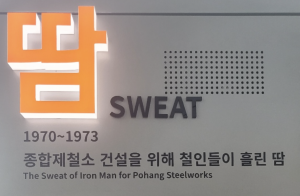VISUALISING BHUTAN
A photo essay to introduce you to the EATWELL project.

A photo essay to introduce you to the EATWELL project.

In the spirit of life long learning
Welcome to Daniel's testproject
Photo essay of wall text of POSCO Museum of Pohang

XXX

Dr. Knowles discusses the role and nature of investigations after disasters, particularly in regard to engineering and structural aspects. He primarily draws parallels between the delayed and botched engineering investigations after 9/11 and several similar historical disasters. Dr. Knowles contends these investigations can drastically effect how the public interprets disaster response; yet, it is often overlooked by officials until demanded by public outcry.
Didier Fassian is a french anthropologist and sociologist with extensive global field work. He currently teaches as a professor in the School of Social Science in the Institute for Advanced Study. Fassin, although trained as an internal medicine specialist, focuses the vast body of his publication and research focuses on the intersection of the State, justice, and humanitarianism.
Emily Goldmann, PhD, MPH: current assistant research professor at NYU College of Global Public Health, Dr. Goldmann researches environmental and social determinants of mental health conditions. Formerly employed by NYC department of Health and mental Hygiene in the Bureau of mental Health, Dr. Goldmann focused on surveillance of psychological distress, serious mental illness, and psychiatric hospitalization of New Yorkers following Hurricane Sandy.
Sandro Galea, MD, MPH : a canadian/american board-certified emergency physician, Dr. Galea is currently the Dean of BU School of Public Health and former Chair of the Department of Epidemiology of Columbia University's Mailman School of Global Public Health. His particular research includes social production of health within urban populations, and especially notes psychological and mental health disorder prevalence within vulnerable populations, including mood-anxiety disorders and substance abuse. He also has participated in multiple committees and boards analyzing effects of mass trauma in the wake of international conflicts and disasters such as Hurricane Katrina, Iraq/Afghani wars, 9/11, and sub-Saharan Africa conflicts.
The film centers around Camp Lejuene, a Marine Corps base in Jacksonville, North Carolina. The camp experienced contaminated water from about 1957 to 1987; the wells contained 240-300 times the allowed amount of volatile organic materials. The film follows the struggles of individuals who lived in Camp Lejuene during this time to receive information, compensation, and recognition for what they experienced. While many individuals are interviewed and discussed, the film specifically focuses on Jerry Ensminger, a former Marine Corps Master Sgt. for almost 25 years. Ensminger lost his daughter, Janie, to pediatric leukemia while living on the base. He is one of many parents and former residents who were directly effected by the contaminated water. The VOM's in the water included TCE, PCE, and benzene, all known to cause cancer and childhood defects.